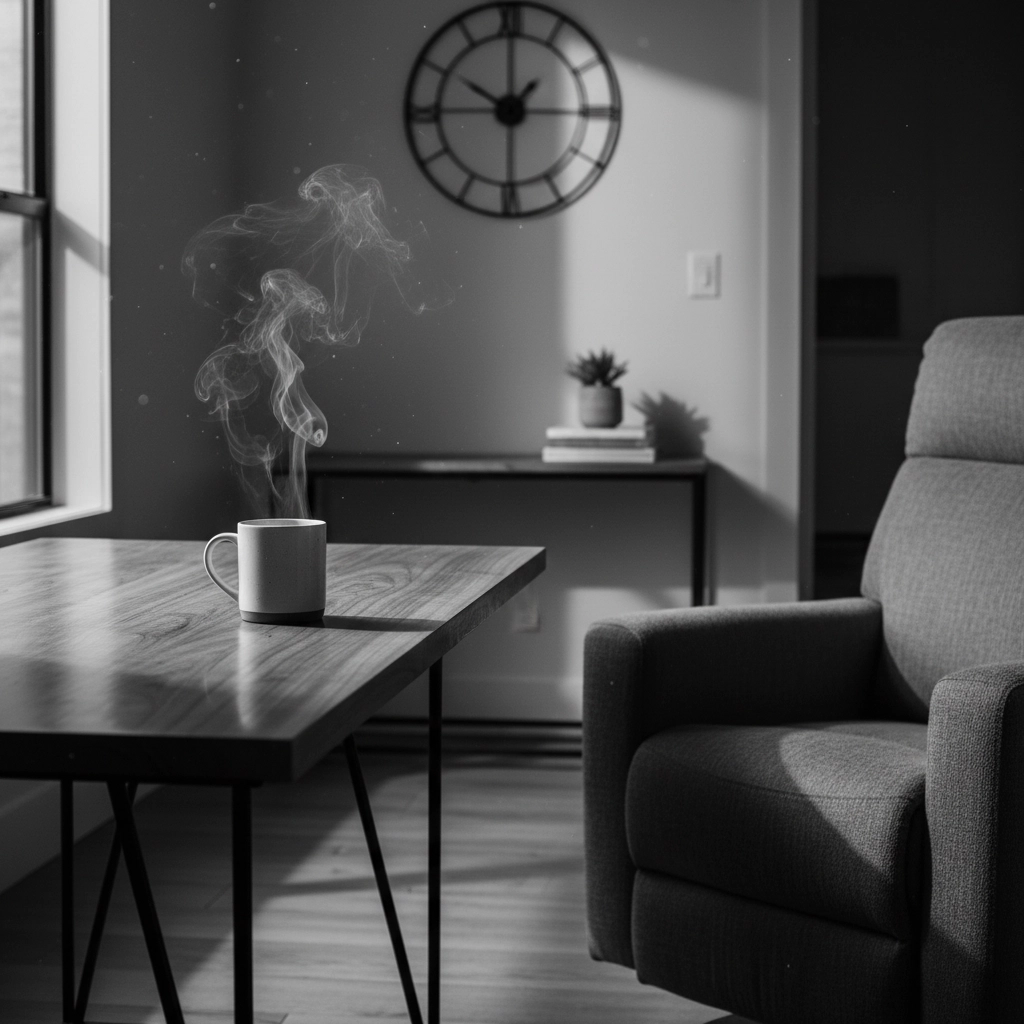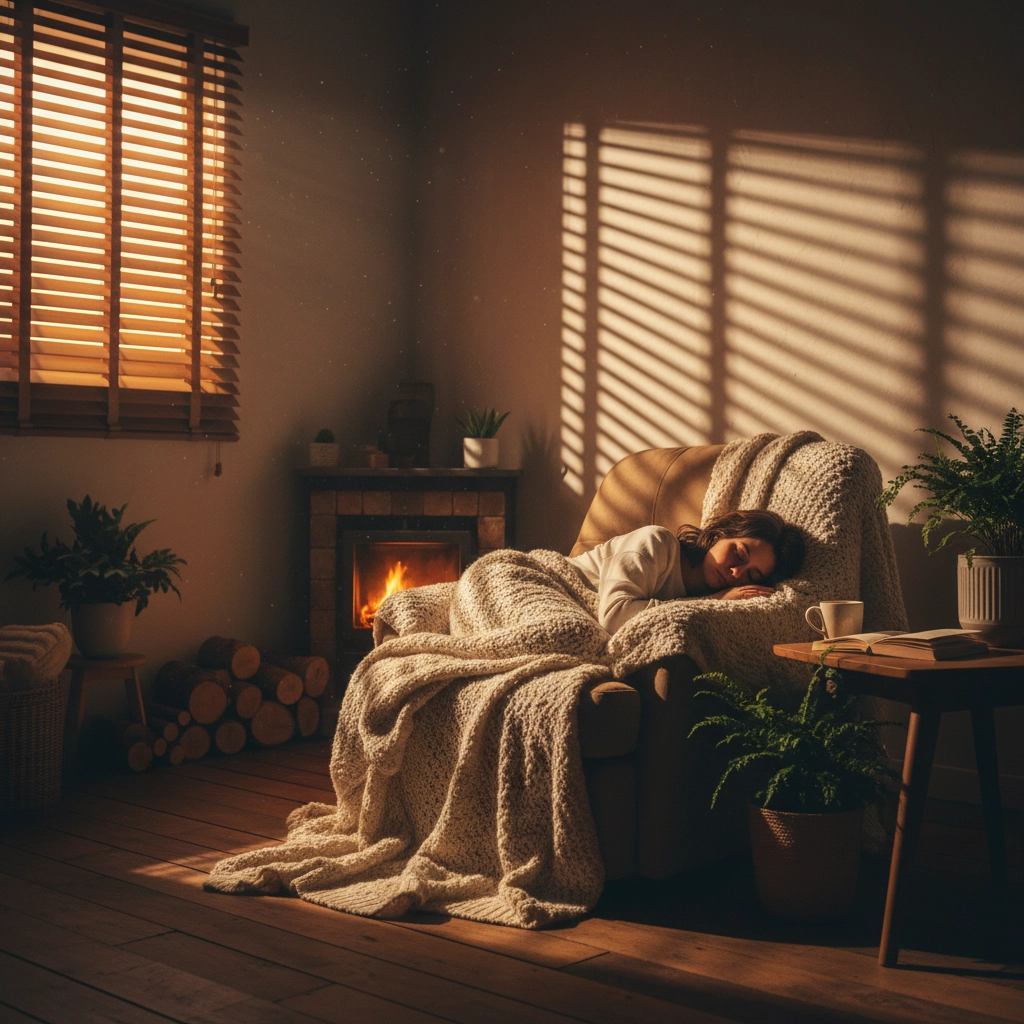Let's be honest – we've all been there. It's 2 PM, you're staring at your computer screen, and your brain feels like it's moving through molasses. Your eyelids are getting heavy, and you're fighting the urge to rest your head on your desk. What if I told you that giving in to that urge might be exactly what your mind needs?
Daytime napping isn't just for toddlers or lazy Sunday afternoons. It's actually a powerful tool for boosting mental clarity, enhancing cognitive performance, and keeping your brain sharp. And when paired with the right coffee routine, it can transform your entire day.
The Science Behind Napping and Mental Clarity
Recent research has revealed some pretty amazing things about what happens in our brains when we nap. Studies show that people who take strategic daytime naps demonstrate better word recall and superior performance on cognitive tasks compared to those who power through without rest.
But here's where it gets really interesting – napping doesn't just help you feel less tired. It actively enhances your brain's ability to process information, consolidate memories, and prepare for new learning. Think of it as hitting the refresh button on your mental browser.

When you nap, your brain goes through a process called memory consolidation. This means it's taking all the information you've absorbed during the morning and organizing it, filing it away properly, and making connections you might have missed when you were actively trying to focus. It's like having a personal librarian working inside your head, sorting through everything and making it easier to access later.
Finding Your Perfect Nap Sweet Spot
Not all naps are created equal, and timing is everything when it comes to maximizing mental clarity benefits. Research has identified two optimal windows for napping:
The Power Nap (10-30 minutes): These shorter naps are perfect for increasing alertness, improving mood, and boosting productivity without leaving you groggy. They're like a shot of espresso for your brain – quick, effective, and energizing.
The Restorative Nap (30-90 minutes): Longer naps in this range have shown the most impressive cognitive benefits. People who nap for 30-90 minutes perform better on memory tests, creative tasks, and problem-solving activities. However, anything longer than 90 minutes can leave you feeling drowsy and interfere with nighttime sleep.
The key is finding what works for your schedule and energy levels. If you're someone who needs to jump right back into work, stick with the power nap. If you have more flexibility and want maximum cognitive benefits, try the longer option.
The Coffee Connection: Timing Your Brew
Here's where things get really interesting for us coffee lovers. The relationship between caffeine and napping is more nuanced than you might think. While it might seem counterintuitive, the timing of your coffee can actually enhance the benefits of your nap.

Consider this strategy: enjoy a cup of our carefully crafted Single Origin Blends right before your nap. Since caffeine takes about 20-30 minutes to fully enter your bloodstream, you'll wake up from your power nap just as the caffeine kicks in – giving you a double boost of natural energy and chemical alertness.
Our Single Origin coffees are perfect for this because they offer clean, focused energy without the jitters. Each origin has its own unique flavor profile and caffeine characteristics, allowing you to customize your pre-nap ritual based on what your afternoon needs.
Creating Your Ideal Nap Environment
The environment where you nap can make or break the mental clarity benefits. You don't need a full bedroom setup – just a few key elements:
Temperature: Keep it slightly cool. Your body temperature naturally drops when you sleep, so a cooler environment (around 68-70°F) helps signal to your brain that it's time to rest.
Darkness: Even if you can't block out all light, try to dim your surroundings. This helps trigger melatonin production, which aids in falling asleep quickly.
Comfort: You don't need a bed, but find a comfortable position. A reclining chair, couch, or even your car can work perfectly.
Sound: Some people prefer complete silence, while others benefit from white noise or soft background sounds. Experiment to see what works for you.

The Long-Term Brain Benefits
Regular napping isn't just about feeling better in the moment – it's an investment in your long-term cognitive health. Fascinating research has found that people who regularly nap have larger total brain volumes, with their brains appearing 2.6 to 6.5 years "younger" than their non-napping peers.
This suggests that strategic napping might actually slow the rate at which our brains age, potentially reducing the risk of cognitive decline and supporting mental sharpness as we get older. It's like a daily deposit into your cognitive retirement account.
Beyond Mental Clarity: The Mood and Creativity Boost
The benefits of napping extend far beyond just thinking more clearly. Regular nappers report:
- Better emotional regulation: You're less likely to snap at coworkers or feel overwhelmed by minor frustrations
- Enhanced creativity: Your brain uses rest time to make new connections between ideas
- Improved problem-solving abilities: Complex challenges often seem more manageable after a good nap
- Increased patience and focus: You can sustain attention on difficult tasks for longer periods
These benefits create a positive cycle – when you're in a better mood and thinking more clearly, you're more likely to make good decisions, including the decision to prioritize rest when you need it.

Making Napping Work in the Real World
"But I can't nap at work!" you might be thinking. Fair point, but there are more opportunities than you might realize:
Lunch break naps: If you have a 60-90 minute lunch break, try eating quickly and using the remaining time for a power nap in your car or a quiet area.
Weekend warrior approach: Use weekends to establish a regular napping routine that helps reset your weekly energy levels.
Work-from-home advantage: If you work remotely, even part-time, build short naps into your schedule during natural energy dips.
Vacation reset: Use time off to experiment with napping schedules and find what works best for your body's natural rhythms.
The Art of the Coffee Nap
Let's circle back to that coffee connection because it's worth exploring further. The "coffee nap" or "napuccino" has gained popularity among productivity enthusiasts, and for good reason.
Here's how to do it right: brew a cup of your favorite coffee (might we suggest trying different origins from our collection to find your perfect pre-nap blend?), drink it relatively quickly, then immediately lie down for a 20-minute nap.
The timing works perfectly – by the time you wake up, the caffeine is hitting your system just as the natural alertness from your nap kicks in. It's like having two energy sources converging at exactly the right moment.
Listen to Your Body's Wisdom
Perhaps the most important aspect of embracing daytime naps is learning to tune into your body's natural signals. We live in a culture that often treats tiredness as weakness or laziness, but fatigue is actually valuable information from your body about what it needs.

When you feel that afternoon dip in energy, instead of pushing through with another cup of coffee or forcing yourself to stay alert, consider it an invitation to rest. Your brain is telling you it needs time to process, consolidate, and recharge.
This doesn't mean sleeping the day away – it means becoming more strategic about when you work intensively and when you allow for recovery. Mental clarity isn't about constant alertness; it's about having sharp focus when you need it most.
The next time you feel your eyelids getting heavy in the afternoon, don't fight it. Embrace it. Find a comfortable spot, maybe enjoy a pre-nap coffee ritual with one of our thoughtfully sourced blends, and give your brain the rest it's asking for. You might be surprised by how much clearer everything seems when you wake up.
After all, sometimes the most productive thing you can do is absolutely nothing at all – except maybe dream up your next great idea.




